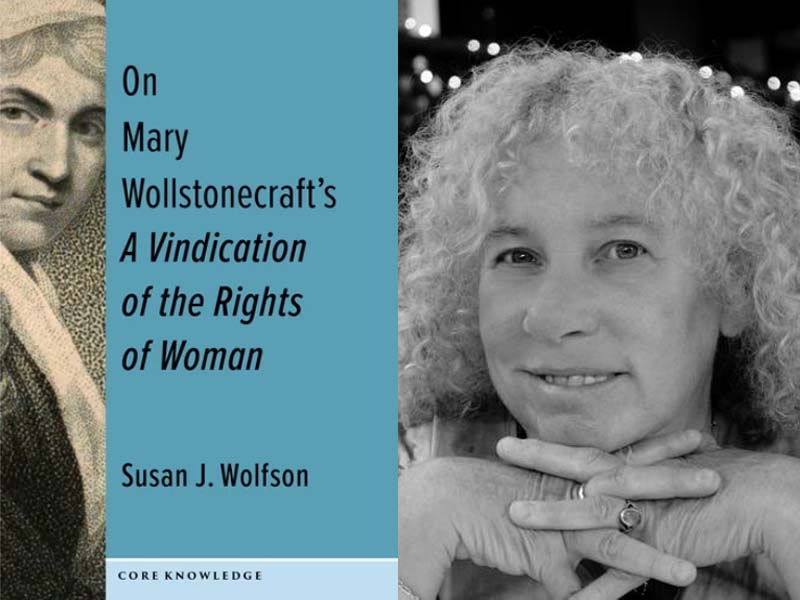Susan Wolfson is Professor of English. Her book “On Mary Wollstonecraft’s A Vindication of the Rights of Woman” was published in April 2023 by Columbia University Press.
How did you get the idea for this project?
I was invited to write this short book for Columbia University Press’s Core Book series. It’s the third title, the first to treat a woman. I’ve been teaching A Vindication of the Rights of Woman for years, and writing about it, too, so I was confident I could bring some fresh angles to this major work.
How has your project developed or changed throughout the research and writing process?
I was contacted about this project early in 2020, but I had another big book to finish, on John Keats (A Greeting of the Spirit,October 2022), so I had originally agreed to turn in the manuscript for Wollstonecraft, Mary Wollstonecraft’s A Vindication of the Rights of Woman: “the first of a new genus,” in January 2023 (this year), planning to turn to it full throttle after the Keats book was in final production.
Then the Dobbs decision came down, and it was quickly clear that the rights of twenty-first century women in the US over their own bodies, their lives, their independence, and autonomy were in dire peril. Even in some quarters of England and the US, their right to vote and to hold public office was being called into question by younger generations of men. The head of the Columbia series contacted me and asked if there was any way I could accelerate my schedule … and I pretty much worked on this book every day of the summer of 2022. It was thrilling, and it felt freshly important.
What questions for future investigation has the project sparked?
I’m not sure this will be my next project, however, I’m interested in the various ways, in England and the US, Wollstonecraft’s ideas took hold while the name “Wollstonecraft” was nearly scrubbed, after the notoriety of Godwin’s misbegotten Memoirs of her, which in candor, detailed several socially scandalous behaviors (conception out of wedlock; two suicide attempts; no regular church attendance).
Why should people read this book?
I’ve written it for what Virginia Woolf (who wrote important, fiercely admiring essays on Wollstonecraft after Englishwomen gained the vote) called “the common reader.” I mean by this designation the general reader. While there is plenty of fresh and focused discussion and research-y threads to interest academic readers (professional peers, graduate students), I’ve written it with the common reader in mind—that is anyone who wants to study Wollstonecraft’s landmark polemic in the decade of its first publication and understand why it has become so influential. I’ve written, I hope, in the mode of critically energetic storytelling. This is not a long book at all, with really interesting chapter on how Wollstonecraft has been represented in visual art, and I hope very readable and engaging, as well as freshly instructive.
Learn more about other publications by Princeton University faculty in the humanities by exploring our Faculty Bookshelf.
















